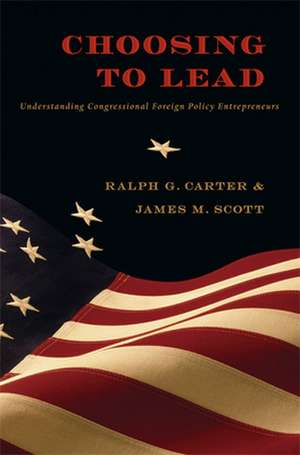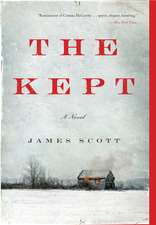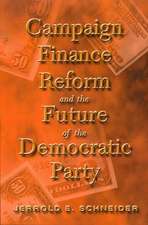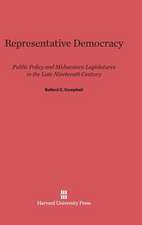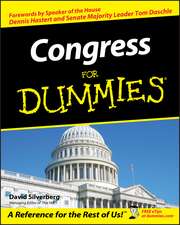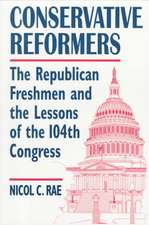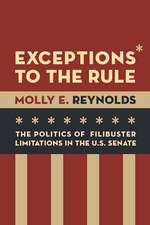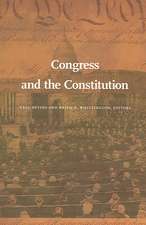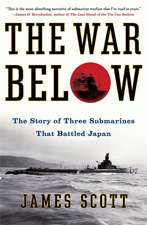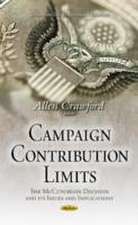Choosing to Lead – Understanding Congressional Foreign Policy Entrepreneurs
Autor Ralph G. Carter, James M. Scotten Limba Engleză Paperback – 2 iul 2009
Preț: 264.26 lei
Nou
Puncte Express: 396
Preț estimativ în valută:
50.57€ • 52.48$ • 42.27£
50.57€ • 52.48$ • 42.27£
Carte tipărită la comandă
Livrare economică 15-29 martie
Preluare comenzi: 021 569.72.76
Specificații
ISBN-13: 9780822345039
ISBN-10: 082234503X
Pagini: 312
Ilustrații: 38 tables
Dimensiuni: 152 x 228 x 15 mm
Greutate: 0.45 kg
Editura: MD – Duke University Press
Locul publicării:United States
ISBN-10: 082234503X
Pagini: 312
Ilustrații: 38 tables
Dimensiuni: 152 x 228 x 15 mm
Greutate: 0.45 kg
Editura: MD – Duke University Press
Locul publicării:United States
Cuprins
Contents; Preface1. Beyond the White House: Bringing Congress into the Foreign Policy Picture; 2. From Problem to Policy: A Theory of Congressional Foreign Policy Entrepreneurship; 3. Surveying the Landscape: Congressional Foreign Policy Entrepreneurs since World War II; 4. The Rising Tide: Entrepreneurship in the Cold War Consensus Period, 19461967; 5. Players in the Game: Entrepreneurship in the Cold War Dissensus Period, 19681989; 6. Contending with the Thaw: Entrepreneurship in the PostCold War Period, 19902000; 7. After 9/11: Entrepreneurs into the 21st Century; 8. Part of the Landscape: Conclusions on the Entrepreneur EffectNotes; Bibliography; Index
Recenzii
Two scholars reveal here the fascinating stories of enterprising American lawmakers whove exerted extraordinary personal influence in the making of American foreign policy. Sometimes un-noted in contemporary writings and occasionally unappreciated, some were surprisingly successful and some stunningly selfless. Choosing to Lead is historically significant and interestingly written. Jim Wright, Former Speaker, U. S. House of RepresentativesI now see the foreign policy-making process in a different light than I did before reading Choosing to Lead. Ralph G. Carter and James M. Scott show that Congress can and regularly does play an important role in foreign policy making. In the future, foreign-policy analysts will have to consider that role rather than assume that only the Oval Office matters.A. Cooper Drury, author of Economic Sanctions and Presidential Decisions: Models of Political Rationality
Notă biografică
Ralph G. Carter is Professor and Chair of the Department of Political Science at Texas Christian University. He is a co-author of "Making American Foreign Policy" and the editor of "Contemporary Cases in U.S. Foreign Policy: From Terrorism to Trade."James M. Scott is Professor and Head of the Department of Political Science at Oklahoma State University. He is the author of "Deciding to Intervene: The Reagan Doctrine and American Foreign Policy," also published by Duke University Press; co-author of "The Politics of United States Foreign Policy "and "American Foreign Policy: Pattern and Process"; and editor of "After the End: Making U.S. Foreign Policy in the Post-Cold War World," also published by Duke University Press.
Textul de pe ultima copertă
"I now see the foreign policy-making process in a different light than I did before reading "Choosing to Lead." Ralph G. Carter and James M. Scott show that Congress can and regularly does play an important role in foreign policy making. In the future, foreign-policy analysts will have to consider that role rather than assume that only the Oval Office matters."--A. Cooper Drury, author of "Economic Sanctions and Presidential Decisions: Models of Political Rationality"
Descriere
Assesses Congress's role in US. foreign policy making
